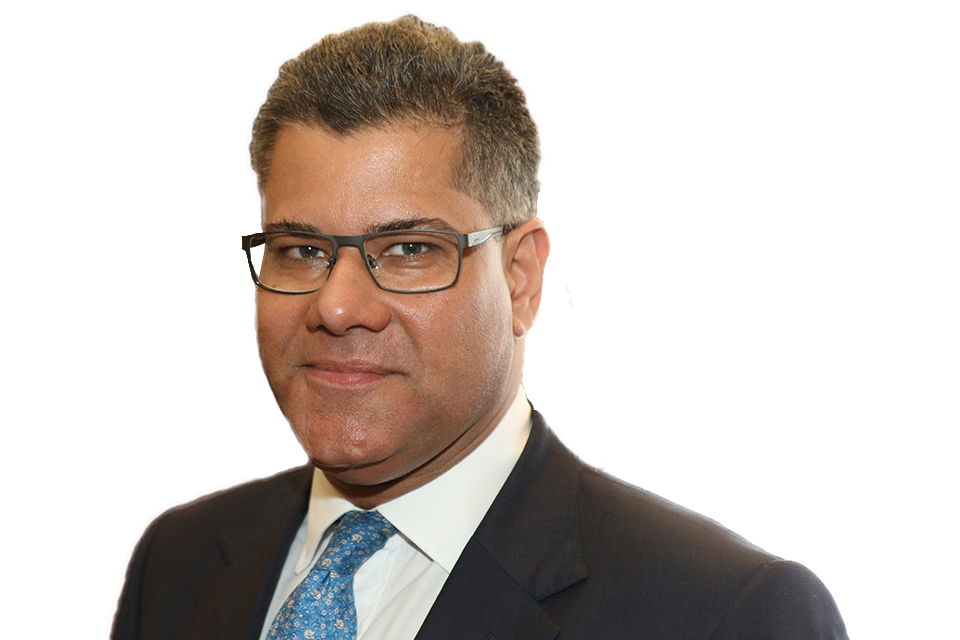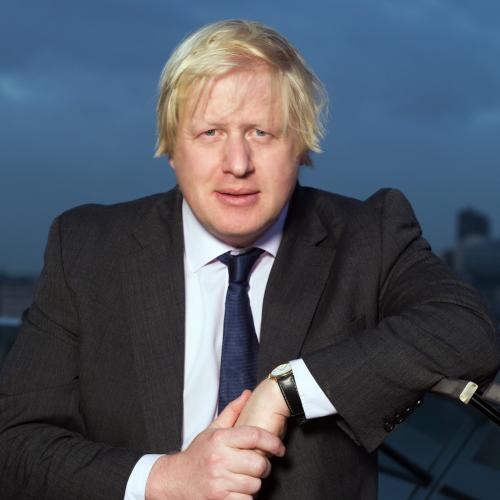Theresa May – 2017 Speech at 20th Anniversary of Bank of England Independence
Below is the text of the speech made by Theresa May, the Prime Minister, in London on 27 September 2017.
Thank you, Governor, for that introduction.
As one who began her professional life at the Bank of England some forty years ago, it is a great pleasure to address this conference today.
When I first started working for the Bank, back in 1977, it was a very different institution from the one we see today. Central banking then was a profession shrouded in secrecy.
The spirit of that time is captured in a story which the former Governor Mervyn King tells.
When Lord King first joined the Bank of England, he asked Paul Volcker, the eminent Chairman of the Federal Reserve under Presidents Carter and Reagan, what quality a central banker should seek to embody: ‘mystique’ was his reply.
Much has changed in the years since, and for the better.
You, Governor, have contributed to that improvement, through the reforms you have led at the Bank of England. Today, openness and transparency are defining characteristics of a modern central bank.
20 years of independence
And this conference celebrates an important milestone in the evolution of this institution: the granting of operational independence.
The newly elected Labour Government decided shortly after the 1997 general election that they would do what successive Governors, and indeed some Conservative Chancellors, had long talked about: give the Bank responsibility for setting the official short-term interest rate.
As a newly-elected MP at that time, I remember those debates well. Looking back on them now, after 20 years in which independent monetary policymaking has become the norm around the world, the disagreements which then divided the House of Commons on the issue seem rather academic.
The successful adoption of inflation targeting in 1992 had already taken much of the political heat out of rate setting.
And fears that the absence of a formal dual mandate to protect employment as well as target inflation might put jobs at risk have proved unfounded.
I would like to pay tribute to you, Governor, to your predecessors Lord King of Lothbury and the late Lord George, and to all the members who have served on the Monetary Policy Committee over the last two decades.
You have been a dedicated group of public servants, motivated to serve the public interest and to discharge the responsibility which Parliament has given you to the best of your ability. There is much to be proud of over the last twenty years.
Whatever the debates at the time, there was never any real disagreement about what the central aim of monetary policy should be – to eliminate the high inflation which had bedevilled the British economy for decades.
From the start of inflation targeting in 1992, and operational independence in 1997, that is what the Bank has helped to achieve.
As it has in other countries, central bank independence has helped improve credibility and accountability, has successfully anchored inflation expectations and has contributed to low and stable inflation.
The results have been impressive.
Since independence, UK inflation has been much more stable than it was in the previous twenty years, when it fluctuated from 1% to 22%.
We know that high inflation hurts ordinary people, and that low and stable inflation benefits households and businesses.
The fact that inflation of 22% sounds outlandish to us today is a tribute to your success.
Ten years on from financial crisis
But as we reflect on the undoubted successes of the last twenty years, we cannot do so with any complacency. Yes, inflation targeting and operational independence contributed to a period of steady growth, low and stable inflation, and general expansion in the ten years after 1997.
But problems were developing which would later become apparent during the financial crisis of 2007-08.
The Great Recession which followed that crisis brought some of the most challenging economic times our country has known.
The Bank was inevitably caught up in the dramatic events of 2007 and 2008. The tripartite regulatory system, of which the Bank was a part, did not prove to be a success.
It failed the country during the financial crisis and we have had to live with the consequences of that failure ever since.
Our GDP fell by more than 6%, as the UK endured our deepest recession since the Second World War. Successive Governments have been forced to take difficult decisions to restore the public finances to order. These have been decisions which no government would ever want to take.
The British people, who played no part in causing the financial crisis, have had to make sacrifices in order to return the economy to health and ease the burden of debt on future generations.
Real progress has been made over the last seven years.
The Bank has played its part, using its independent monetary policy tools of interest rates and Quantitative Easing to support our economy through the crisis and into the recovery.
The Government has worked to repair our country’s finances and the latest public sector borrowing figures show that the deficit has been reduced by more than two thirds, from a post-war high of 10% of GDP in 2009-10 to 2.3% of GDP in 2016-17.
But in truth, much work remains ahead of us, and for all our progress, we should neither forget nor underestimate the scale of the sacrifices which have been necessary to get us this far.
A well-regulated free market
The impact those sacrifices have had on ordinary working people has led some to lose faith in free market capitalism.
And globalisation, which has brought us a great many benefits, has also brought changes which have contributed to a wider sense that our economy is not working as it should for everyone in our society.
These are understandable responses. There are genuine problems with our economy which need to be addressed.
But as we do so, we should never forget the immense value and potential of an open, innovative, free market economy which operates with the right rules and regulations.
When countries make the transition from closed, restricted, centrally-planned economies to open, free market policies, the same things happen.
Life expectancy increases, and infant mortality falls.
Absolute poverty shrinks, and disposable income grows.
Access to education is widened, and rates of illiteracy plummet.
Participation in cultural life is extended, and more people have the chance to contribute.
It is in open, free market economies that technological breakthroughs are made which transform, improve and save lives.
It is in open, free market economies that personal freedoms and liberties find their surest protection.
A free market economy, operating under the right rules and regulations, is the greatest agent of collective human progress ever created.
It was the new combination which led societies out of darkness and stagnation and into the light of the modern age.
In essence, it is very simple.
It consists of an open market place, in which everyone is free to participate, regulated under the rule of law, with personal freedoms, equality and human rights democratically guaranteed, and an accountable government, progressively taxing the economic activity which the market generates, to fund high-quality public services which are freely available to all citizens, according to need.
That is unquestionably the best, and indeed the only sustainable, means of increasing the living standards of everyone in a country.
And we should never forget that raising the living standards and protecting the jobs of ordinary working people is the central aim of all economic policy.
Helping each generation to live longer, fuller, more secure lives than the one which went before them.
Not serving an abstract doctrine or an ideological concept – but serving the real interests of the British people.
Restoring faith in a free market economy
And those of us who believe that the interests of the British people are best served through a successful open, free market economy need to be honest about where it is not currently working or delivering for ordinary working people today.
That is why the Government is leading a determined programme of wide-reaching economic reform.
We have already overhauled our system of banking regulation, to put the Bank of England at the centre of the new framework.
The Financial Policy Committee protects financial stability through macro-prudential regulation.
The Prudential Regulation Authority serves as a micro-prudential regulator.
And the Financial Conduct Authority regulates the conduct of businesses in our vibrant financial sector.
We implemented the recommendations of the Independent Commission on Banking and the Parliamentary Commission on Banking Standards, putting in place strict new rules on bank ring-fencing and enhancing individual accountability to raise standards.
Our economy has made great strides in the last few years, but we know that for too long, too many communities across the United Kingdom have not seen the benefits of economic growth and prosperity. That waste of potential is bad for the areas concerned and bad for our country’s wider productivity.
The Bank has always taken the economic health of our whole UK seriously, as your formidable network of local agents, based out in the nations and regions of the UK, testifies.
And through our Industrial Strategy, the Government is playing its part in promoting growth across the whole country. That strategy will help business invest in the latest technologies, turn local areas of excellence into national export champions, and support the skills and innovation we need to succeed in the industries of the future.
A thriving financial services sector, providing high-quality jobs right across the United Kingdom, is vital to our future prosperity. That sector benefits from a strong and respected framework of regulation, which incentivises innovation. And we will work with the sector to ensure the UK remains the world’s financial centre and the global hub of fintech.
Britain now has a record number of people in work and our flexible labour market has contributed to that success. Many people value the flexibility of our system, but that flexibility cannot be one-sided.
That’s why I commissioned Matthew Taylor to conduct a thorough review into modern employment practices in our economy. His report recommended that all work should be fair and decent, with scope for development and fulfilment. That is an ambition we fully share.
Britain has some of the world’s very best higher education institutions, researchers and engineers. But we know that our system of technical education leaves too many of our young people without the skills they need to get a job – that holds them back and hurts our economy.
So our new T-level qualifications will reverse decades of drift and create a new, high quality, vocational equivalent to A-Levels.
Britain sets the global standard for high quality corporate governance. International firms are attracted to the UK in part because of the strengths of our regulatory system. But we know that to stay competitive, we must keep our standards high and ensure that bad examples of corporate governance do not undermine the public’s faith in our market economy.
So our reforms to corporate governance will give workers and shareholders a stronger voice in the board room and ensure that our biggest firms are incentivised to take decisions which are in the right long-term interest of their businesses.
These reforms will bring greater transparency, openness and accountability to markets and to the corporate sector; the very same principles that the Bank has lived up to in its work through the Monetary Policy Committee.
The need to reform
Now, some argue that a free market economy is an end in itself, and that drawing attention to the downsides is somehow anti-business.
Others would use the imbalances which are now apparent as a justification for the total rejection of the free market economy, which has done so much to improve our lives.
Instead they advocate ideologically extreme policies which have long-ago been shown to fail, and which are failing people today in places like Venezuela.
My argument has always been that if you want to preserve and improve a system which has delivered unparalleled benefits, you have to take seriously its faults and do all you can to address them.
Not to do so would put everything we have achieved together as a country at risk.
It would lead to a wider loss of faith in free markets, and risk a return to the failed ideologies of the past. A return to protectionism in international trade, and to inflationary policies at home.
Far from somehow protecting the poorest and most vulnerable in our society, that outcome would surely hurt them the most.
New economic partnership with the EU
This is a crucial time to address these fundamental economic questions.
Last week in Florence, I set out my vision for the new economic partnership I want our country to build with the European Union in the years ahead.
That vision is rooted in a belief in a well-regulated, open, free market economy, with sound money and stable prices.
As I set out, in leaving the EU, the UK will no longer be members of its single market or Customs Union. That, of course, will mean changes. You cannot have all the benefits of membership of the single market without its obligations.
So, our task is to find a new framework that allows for a close economic partnership, but which holds those rights and obligations in a new and different balance.
In forging that new partnership, we start from an unprecedented position.
At the point of our exit, we will have exactly the same rules and regulations as the EU, as our EU Withdrawal Bill will ensure they are carried over into our domestic law.
The challenge, then, is not how to bring our rules and regulations closer together, but what to do when one of us wants to make changes.
That fact should give us confidence. And I believe there are further good reasons to be ambitious and optimistic about what lies ahead.
The UK is one of the largest economies in the world and EU’s biggest export market.
Businesses and jobs across the continent rely on our shared trade.
And, more fundamentally, we share a common commitment to the principles of an open free market economy, which I referred to earlier.
We believe in free trade, in rigorous and fair competition, in strong consumer rights, and in a rejection of protectionism.
And whether it is on goods or on services – including the excellent financial services for which the UK has a global reputation – creating needless new barriers to trade between the EU and its biggest market would benefit no one.
The UK’s financial markets provide support for businesses and consumers right across the EU, reducing the cost of capital and supporting choice and innovation for consumers. It is in neither the EU’s nor the UK’s interest to see these financial service markets fragment, and that is another reason I am confident we can agree a new partnership that enables us to continue to work together to bring prosperity for all our peoples.
A balanced approach
And that is a responsibility which democratically elected governments, and institutions dedicated to the public good, like the Bank of England, both share: to promote the prosperity of the people we serve.
For the Bank of England – strengthened and improved since the financial crisis – that means discharging its responsibilities to keep inflation on target and maintain the wider health and sustainability of the financial sector. For the Government, that means stepping up to its role, ensuring that the rules and regulations which define the free market are designed to make it serve the interests of ordinary working people.
Success in this mission must be underpinned by a balanced approach to public spending.
That means continuing to deal with our debts, so that our economy can remain strong and we can protect people’s jobs.
At the same time, it means investing in our vital public services, like schools and hospitals, which our successful management of the economy has made possible.
To abandon that balanced approach with unfunded borrowing and significantly higher levels of taxation would damage our economy, threaten jobs, and hurt working people.
It would mean paying even more in debt interest, which already costs us more each year than we spend on schools.
Ultimately, it would mean less money for the public services we all rely on.
Conclusion
So we can already see in outline the challenges and opportunities which will define the Bank’s third decade of independence.
Building a new economic partnership with the European Union, which will deliver prosperity for all our people, and making the most of the opportunities which Brexit presents.
Reforming our economy, so that the benefits of a well-regulated free market are felt in all parts of our country, and by everyone in our society.
And taking a balanced approach to public spending, so debt falls as our economy grows, and we can invest in the public services on which we all depend.
I have no doubt that Bank will continue its work to deliver the monetary and financial stability that is essential for a successful economy, as we make the most of the opportunities ahead.
Governor, I wish you and your distinguished guests well over the next two days as you explore what the future may hold.



